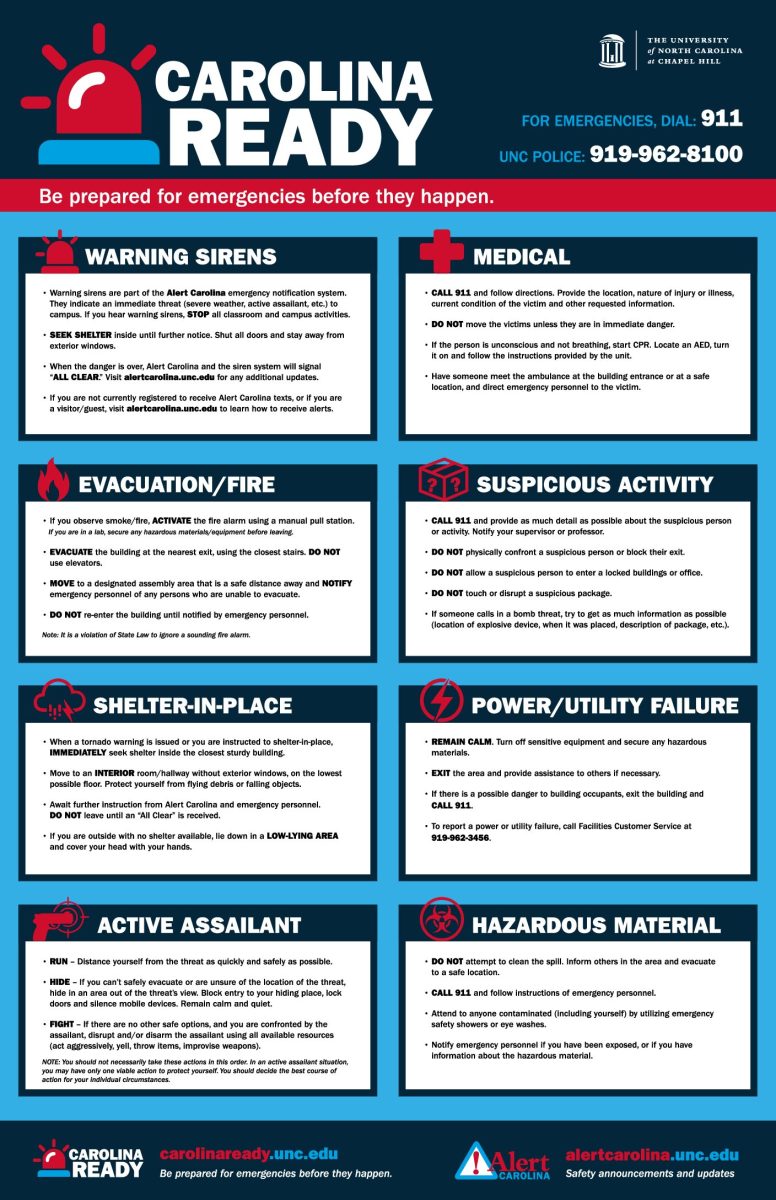Emergency Information
Alert Carolina
The University uses multiple methods of emergency notification, such as emails and text messages to contact those who are registered with the Alert Carolina system. To receive Alert Carolina text messages, please visit the Alert Carolina website.
Gillings School Emergency Preparedness
Being prepared for any hazard that may hit the UNC-Chapel Hill campus – whether large or small in scope, natural or not – is a priority of the Gillings School. Here are links to other emergency preparedness information.
- UNC-Chapel Hill Campus Alerts, Tornado and Weather Hazards
- Gillings School Severe Weather and Tornado Shelters
- Gillings School Emergency Coordinators
- Gillings School Evacuation Points (PDF)
AEDs
Automatic External Defibrillators (AEDs) are located throughout the Gillings School:
- Rosenau Hall, First Floor – in the main lobby, by the Columbia Street entrance
- Michael Hooker Research Center, First Floor – by the front entrance
- McGavran-Greenberg Hall, First Floor – in the main lobby, by the Pittsboro Street entrance
Workplace Incidents
All workplace incidents should be reported to the appropriate employee supervisor. Incident report forms can be found on the UNC Environmental Health and Safety website.
Town of Chapel Hill and Other Partnerships
- Community Safety Partnership
- Neighborhood Watch
- CrimeStoppers of Chapel Hill, Carrboro and UNC
- SAFE Kids Orange County
- National Night Out
- CarolinaSafe
- Safe@UNC
- Town of Chapel Hill

